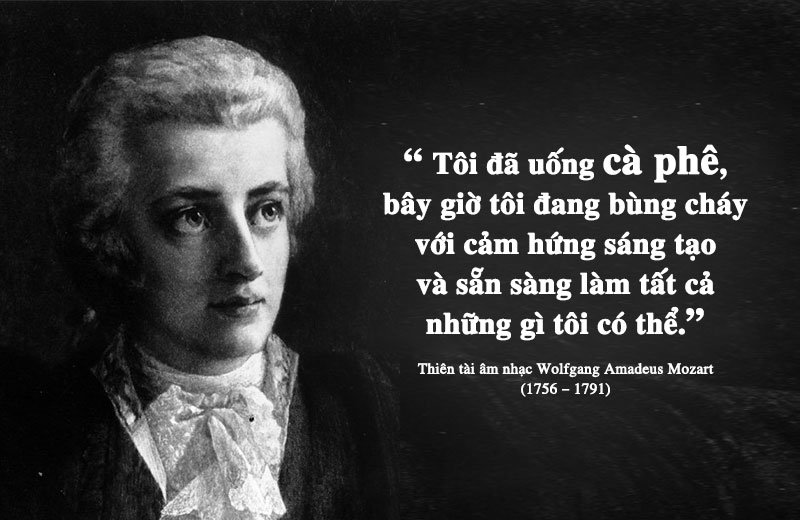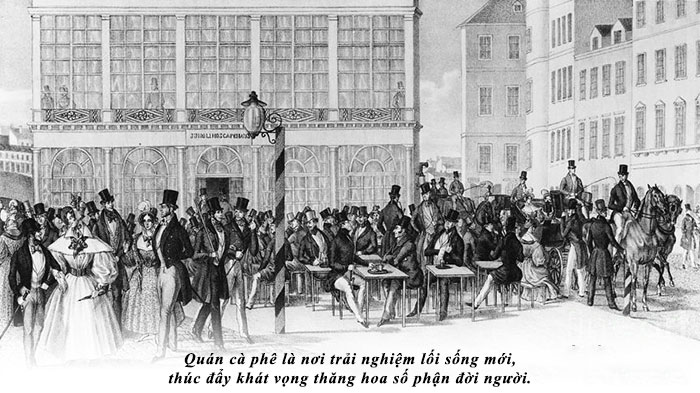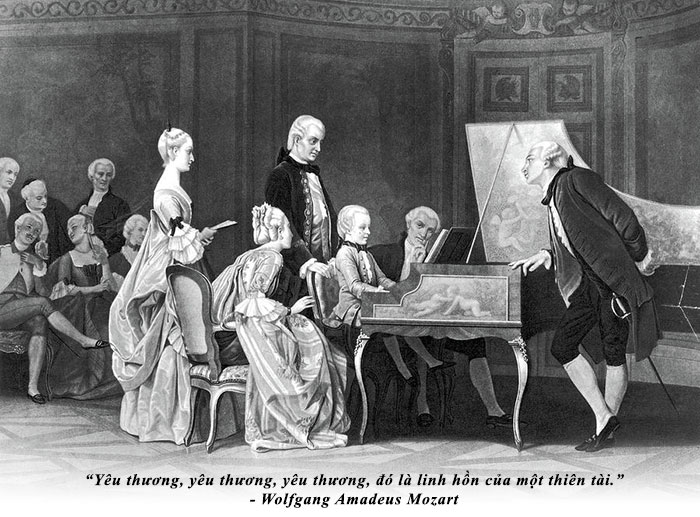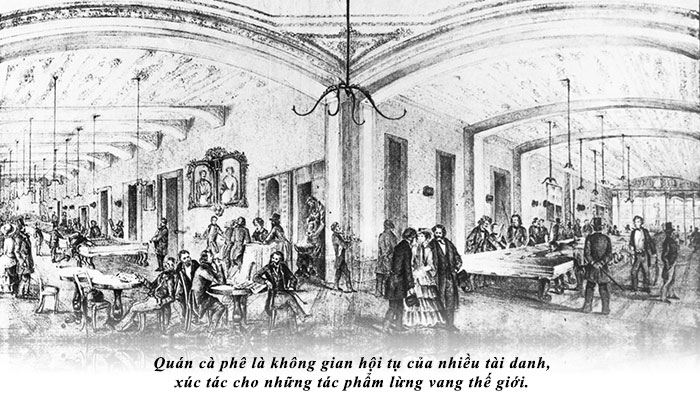Article 32: Wolfgang Amadeus Mozart and a musical genius’s love of coffee
Along with the process of shaping the identity of Austrian coffee in the capital Vienna, this city was also the place where the creative movement in music flourished, making Vienna the “European music capital”.

“I drank coffee, now I am burning with creative inspiration and ready to do all I can.” – Wolfgang Amadeus Mozart (1756 – 1791)
Change to be great
At the end of the 17th century, right after the end of the 300-year war with the Ottoman Empire, Emperor Leopold I (ruled Rome from 1658 to 1705) carried out comprehensive reforms in politics, culture, economy… putting Austria at the center of Europe
Despite the post-war difficulties, Leopold I built monumental architectures, splendid churches, lavish theatres, etc. Then he promoted education, built schools, libraries and museums and supported activities to develop literature, art, music… He almost completely changed the way of life of Austrians. During the reign of Leopold I, the Baroque movement reached its peak in Austria, and Vienna also became a famous cultural center.

The coffee shop was a place to experience a new lifestyle and promote the desire to sublimate one’s destiny.
Emperor Leopold I granted the privilege of the cafe to be expanded in Vienna. In the 18th century, Vienna built coffee factories on the territory and promoted the coffee processing industry. Coffee shops were invested in terms of architecture and decorative arts, becoming a special space of Vienna, mainly located in the central location and the main streets of the city.
With flourishing art and culture, Vienna was considered an ideal land. Talents from all over Europe came to Vienna to create and fulfill life’s big dreams such as: Giovanni Giuliani (Italian sculptor), Jean Nicolas Jadot de Ville-Issey (French architect), Ludwig van Beethoven (German musical genius), Antonio Lucio Vivaldi (Italian composer), Martin van Meytens (Swedish painter)…
Following the continuous creative rhythm of the Baroque period, the Viennese cafe space also improved and shaped the style. Not only a place to enjoy coffee, a place to gather and meet, the coffee shop was also a place to experience a new lifestyle and promote the aspiration to sublimate fate as the motto of most coffee shops at that time: “Du sollst dein Leben andern” (You should change your own life).
The intelligentsia, the elite individuals, the new aristocracy… met and debated in the cafe. They talked, read newspapers, participated in mind games and brainstormed new ideas.
Great achievement of a genius
Born in Austria during the Baroque period, Wolfgang Amadeus Mozart (1756 – 1791) had favorable conditions to reveal his natural talent for music during young age. Mozart was known as a child prodigy when he learned to play the violin and piano when he was 3 years old, and composed music when he was 5 years old. At the age of 7, he toured many European countries, performing in front of kings, queens and aristocrats of several countries.

“Love, love, love, that’s the soul of a genius.” – Wolfgang Amadeus Mozart
After years of traveling throughout Europe and achieving great success, Wolfgang Amadeus Mozart was appointed by the Archbishop of Salzburg as conductor. During his time in Salzburg, Mozart frequented the Café Tomaselli in the Alter Markt square. He liked to drink black coffee, sometimes with almond milk added. This habit is anecdotal when it comes to Mozart. Also during this period, his musical creativity developed in a different direction. He skillfully combined classical music, Galant style, Baroque and sometimes experimented with interweaving the characteristics of German folk opera with some Italian musical elements… This makes Mozart’s music as the crystallization of the cultural quintessence of humanity.
However, the Archbishop of Salzburg did not appreciate Mozart’s creations and efforts. Aspiring for greater things, in 1781, Mozart left Salzburg for Vienna to learn and to be free to create. In Vienna, Mozart faced numerous financial and health difficulties. But it was during the 10 years of hardship here that Mozart’s musical art flourished and was so perfect that it was likened to “the light of the eternal sun”.

The cafe was the convergence of many talents, catalyzing world-famous works.
Wolfgang Amadeus Mozart met composer Joseph Haydn, Ludwig van Beethoven and other Baroque composers at Café Frauenhuber. Impressed with the Viennese lifestyle, along with the influences of the Enlightenment reform of Joseph II (Roman Emperor 1765 – 1790), Mozart innovated classical music by breaking the ruts of scholastic music, bringing new conceptions of optimism, humanitarianism and wisdom… into the work.
Most of Mozart’s immortal masterpieces such as The Marriage of Figaro, Don Giovanni, Die Zauberflote, etc. were composed during the years of living in Vienna. Mozart went to a cafe, played billiards, while at the same time pondering and scribbling notes on paper. Mozart once composed 3 works continuously within 3 hours sitting in a coffee shop. He also conducted musical performances in Café Frauenhuber and Café Bellevue.
In the last year of his life, Mozart’s health deteriorated to the point of being bedridden. In the days of illness, Mozart still maintained his creative mind and passion for composing. He devoted himself completely to his work Requiem and it was also his last work, which could be considered as the most representative, most powerful and resilient work of his.
Wolfgang Amadeus Mozart lived a short life of 35 years, but the musical works of his creation have become a lasting legacy. Until now, Mozart’s work is still a model of musical creativity, and a classic principle in classical music that the next generation musicians always inherit and cherish. Wolfgang Amadeus Mozart was honored as one of the composers who initiated the “Viennese School of Classical Music”.
From the end of the 18th century, concert cafes developed in Vienna, a place to meet, create and share works of world musical talents. Typical concert cafes such as Café Jüngling, Zweites Kaffeehaus, Drittes Kaffeehaus, Erstes Kaffeehaus… have contributed to making Vienna the capital of European classical music.
THE REAL COFFEE
ROASTED ONLY FOR PEOPLE OF WISDOM!
Source: “The Philosophical Way of Coffee” – copyright by Trung Nguyen Legend


